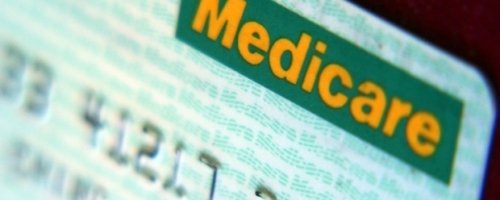Online DBT Service
- Home Our Clinic & Online Services
- Online DBT Service






What is the Trauma Therapy Clinic?
Trauma Therapy Clinic Services
The Trauma Therapy Clinic aims to improve the health outcomes and wellbeing of all individuals seeking to access our programs. We accept referrals for individuals who are aged 15 years and above and reside in the South-Eastern Region of Queensland and the Northern Regions of New South Wales. We also provide support and information for health care providers as well as community and advocacy groups.
Our therapists use a range of approaches including Somatic Trauma Therapy, EMDR, Narrative Therapy, Cognitive Processing, Mindfulness and Dialectical Behaviour Therapy.
Our services at the Trauma Therapy Clinic include Specialist Assessments, Counselling, Psychological Support, and Consultation to Mental Health Professionals. We provide fee based services which can be accessed through self-referral or referrals from health professionals. To access our services please contact our team via email (intake@dbtclinics.com) or by calling 07 5647 3438 to arrange an appointment or intake discussion with one of our specialist mental health professionals.
Our Consumer Advisory Panel is regularly involved in decision making about how to improve our services.
Frequently Asked Questions
It is a common experience to feel nervous before your first appointment. Our clinic, however, is a safe space in which you can explore some very personal issues. By being honest and open, your clinician will be able to form a comprehensive understanding of your experiences and needs.
Our clinic runs from 8am until 4pm each Wednesday. Everyone attending this clinic day is a qualified health professional with an even number of clinicians attending for supervision, coaching and individual therapy.
Most of all you can expect a non-stigmatising space to have your needs address by mental health professionals who choose to work specifically with individuals with a diagnosis of PTSD or Complex PTSD.
The trauma therapy clinic focused on individuals who meet the diagnostic criteria for PTSD and Complex PTSD.
Common Symptoms and Features of PTSD we work with…
Feeling strong reactions such as fear, anger or sadness are natural after a traumatic event. For most people, these feelings will pass with time and support from friends and family. For people who develop PTSD, these feelings are intensely distressing and if left untreated, can last for a long time.
The symptoms of PTSD may interfere with the person’s ability to carry on their everyday life, work and relationships. PTSD is identified by four main groups of symptoms:
- – Flashbacks of the traumatic event through intrusive memories or nightmares. As well as strong emotions, there may be physical symptoms such as sweating, heart palpitations or panic attacks.
- – Feeling emotionally numb. Some people experience ‘dissociation’ – a feeling of watching from a distance as events unfold.
- – Feeling anxious and ‘jumpy’ for no reason.Heightened vigilance can mean the affected person is constantly on the lookout for danger, possibly leading to irritability and a lack of concentration.
- – Avoiding reminders of the event– The person deliberately avoids activities, places, people, thoughts or feelings associated with the event because they bring back painful memories.
If a person has been through a traumatic event and has experienced a combination of the above symptoms for a month or more, then they may be experiencing PTSD.
People with PTSD are at a higher risk of developing other anxiety disorders, substance abuse issues, and mood disorders such as depression or bipolar disorder.
Somatic Trauma Therapy (STT) provides a framework for therapy at the Trauma Therapy Clinic. As part of the STT framework our therapists use a range of approaches including Somatic Trauma Therapy, EMDR, Cognitive Processing, Narrative Therapy, Mindfulness and Dialectical Behaviour Therapy.
Somatic Trauma Therapy (STT) was developed by Babette as an integrated trauma treatment model that puts individuals and their identified needs at the centre of treatment.
Somatic Trauma Therapy
- – seeks to address trauma’s impact on thoughts, emotions and bodily sensations.
- – highlights elements of thought, emotion and bodily sensations into present moment through dual awareness
- – acknowledges impact of the memories associated with past trauma.
- – focuses on supporting individuals to increase control over symptoms and feel more in control
- – ultimately enhances an individual’s quality of life and sense of autonomy.
The direction and duration of the Somatic Trauma Therapy is guided by the individual’s identified needs and is built on the principle that recovery from trauma does not always require an individual to process trauma memories. Somatic Trauma Therapy continues to evolve as a modern theory and techniques continue to emerge in the field.
Our specialist trauma clinic was developed following a four year partnership between Dr. Peter King and trauma specialist Babette Rothschild. Dr. King assisted Babette Rothschild on her training tours of Australia, New Zealand and Singapore and co-facilitated intensive training on Babette’s tours of Australia in 2016-2017 and the UK in 2018. Babette Rothschild is the developer of Somatic Trauma Therapy and author of the Body Remembers (Vol 1 & Vol 2).
Teleconference appointments are available. When booking your appointments the administrative assistant will discuss the use of teleconference. The Trauma Therapy Clinic uses Cliniko software or Zoom for greater security.
The Trauma Therapy Clinic provides mental health assessment and treatment for individuals with a diagnosis of PTSD or Complex PTSD and thier immediate families. Services include: counselling, skills groups, comprehensive DBT programs, and assessment.
The Trauma Therapy Clinic is a fee for service clinic. We continue to seek funding for individuals accessing our services and as soon as we have been successful we will be updating all our procedures and policies.
A standard 50-60 minute consultation will have an out of pocket expense of $103 with our therapists, provided you have a GP referral. However, you can discuss the fees and rebates with us when you make your appointment.
You do not need to have a referral in order to make an appointment or if you are claiming via your private health extras fund.
In order to receive a rebate for the majority of your session fees through Medicare, you must have a

valid referral (called a Mental Health Care Plan) from a GP, psychiatrist or a paediatrician. When you visit your doctor you will need to have our name, address, and email on hand so your doctor can make out the referral. If you do not have a regular GP, we can refer you to a GP within our network.
The following terms apply to fees at this clinic:
- Medicare card holders with a Mental Health Care Plan are entitled to a rebate of part of the fee for up to 20 sessions per calendar year. The fee is $230 for a Clinical Psychologist; $190 for a Psychologist and; $180 for a Social Worker or Mental Health OT. The rebate is $128.40 for a Clinical Psychologist, $87.45 for a Psychologist, and $77.10 for Social Workers and Mental Health OTs making a gap approximately $103 for all of our therapists.
- Appointments 6pm and after attract a $20 premium, as do Saturday appointments.

- Session costs can also be offset against Private Health Extras Cover and rebates vary according to your level of cover. We work with all private health funds.
- If you are covered by NDIS there is generally no out of pocket cost. Some of our clinicians accept funding through DVA and TAC.
Cancellation Policy
We require 48 hours notice to reschedule or cancel a session without occurring any fees. This policy is in place to allow us to offer the allocated time to another client who may be on a cancellation or waiting list for an appointment. In the event that less that 48 hours notice is given to cancel an appointment or a scheduled appointment is not attended, the consultation fee may be charged unless there are extenuating circumstances. Medicare does not cover cancelled appointments.
A late cancelled appointment impacts at least three people:
* The client who is delaying their therapy progress
* Another client who has been sitting on the waiting list to see a therapist urgently
* The therapist who spent the morning preparing for the session
12% of Australians
25% of Individuals
200,000 Australian
20% of women,
2 Million
Statistics above are from a range of sources including Beyond Blue, SANE Australia, National Centre for PTSD, and AIHW
Contact the Trauma Therapy Clinic
Copyright © 2026 Asia Pacific DBT Institute

